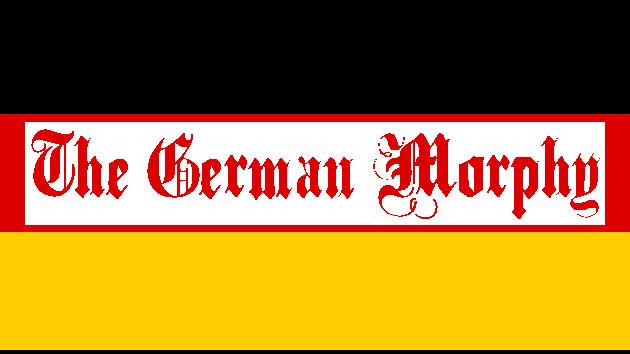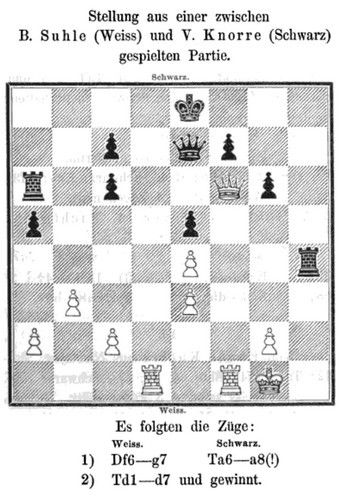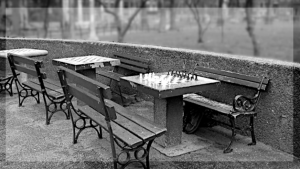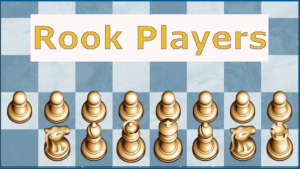
The German Morphy

Most chess enthusiasts are aware that the young Wilhelm Steinitz was sometimes referred to as "the Austrian Morphy." Some might even know that Cecil de Vere had been called "the English Morphy." Few, however, are probably familiar with "the German Morphy."
Several German periodicals published this account in 1859:
Aus acht gleichzeitigen Blindlings-Spielen, welche Berthold Suhle am 20. December 1858 zu Bonn gespielt hat. Sechs Partien wurden von ihm gewonnen, zwei remis gemacht.
but the "Chess Player's Chronical" (1859) wrote:BLINDFOLD CHESS IN GERMANY.
In Germany a new star has also appeared on the Chess horizon, which threatens to dim the light of the Morphy star. Herr Berthold Suhle, in Bonn, twenty-one years of age, has completely defeated several of the German Chess celebrities, amongst others the well-known player Captain Bothe in Cologne, and the strongest player of Venice, Signor Forliko. In blindfold play he has successfully rivalled the performances of Morphy and Harrwitz, having, on the 20th of December last, played eight players at the same time, without seeing the board, and, in a series of 295 moves, having won six games and drawn two.
Berthold Suhle had several things in common with Paul Morphy. Both were born in 1837 —Suhle was a wintry New Year's baby while Morphy was born in the sweltering heat of the Louisiana summer. Suhle lived exactly 2 decades longer than Morphy (dying in the cold of January —in 1904—just as he had been born; Morphy dying in the heat the summer—of 1884—just as he had been born. Suhle, like Morphy, came into the the public's cross-hairs seemingly out of nowhere. In 1858 Morphy astonished the world in giving two 8-board blindfold simuls in 1858 -one at Queen's College in Birmingham on August 27 and on at the Café de la Régence on September 27. On December 20, ironically the day Morphy began his match with Suhle's friend and countryman, Adolf Anderssen, Suhle gave his own 8-board blindfold simul. There seems little doubt that Suhle's adversaries weren't as strong as those of Morphy, but his play, as can be seen in the two extant games, was rather high quality.
Both Morphy and Suhle quit public chess after a short time and while they were still on top of their game. Each, being quite adept outside of chess, seeming had other interests they considered not only more important but which they felt their chess pursuits hindered. Morphy played public chess from about 1857-1863; Suhle's recorded games go fom 1857-1865.
Berthold Suhle studied philosophy and philology (Morphy's two main interests were theological philosophy and French literature). It uncertain when Suhle's academic studies took place, though 1855-1859 has been mentioned, but as early as 1862 he was referred to as Dr. Suhle. During that decade he published books on philosophy such as "Arthur Schopenhauer und die Philosophie der Gegenwart," Parts I and II in 1862 and "Zur Meteorologie des Aristoteles" in 1864. Around the mid 1860s his focus seemed to shift more toward philology and he published numerous works in that field into the mid 1870s.
All these scholarly works comprised his early life. Starting in 1877 Suhle's primary occupation was teaching. He taught at the Stolp Gymnasium, the Königl Gymnasium zu Köslin and the Königl Gymnasium zu Nordhausen. He received the title of Professor in 1895. In 1901 he was conferred the Red Eagle Order IV (Rote Adlerorden IV). "Professor Dr. Berthold Suhle" died on January 26, 1904 in Nordhausen.
However, he was also deeply involved in chess for nearly a decade. He co-founded (with Gustav Richard Neumann) the "Neue Berliner Schachzeitung" and helped edited the "Deutsche Schachzeitung" in 1861. He published "Der Schachkongress zu London im Jahre 1862 nebst dem Schachkongresse zu Bristol im Jahre 1861" in 1864 and collaborated with G. R. Neumann on the highly-praised and oft-referred-to "Die neueste theorie und praxis des schachspiels seit dem schachcongresse zu New-York i. j. 1857" in 1865.
Some of Suhle's chess activities/results include a 4 board blindfold simul in 1858 at a café on the Piazzo San Marco in Venice. While in Venice he defeated the Venetian champion, Bartholomew Forlico 11.5-9.5 in a match held at the Vincentini café in Campo San Bartolomeo.
According to the "Schach-jahrbuch" in 1891 he played Adolf Anderssen in a series of matches in 1859 with the total result of winning 13, losing 27 and drawing 8 (there is some dispute about these results and/or how the occurred - e.g. Serafino Duboi in his "La Rivista degli Scacchi" in 1859 claimed that Anderssen first won a short match +6-1 prior to winning a second match +27-13=8 whille others claim there had been a series of matches).
The next year Suhle demolished Bernhard von Guretzky-Cornitz, the German mathematician, problemist and end-game theorist +6-1=3.
He tied Anderssen in a casual match (+4-4) in 1864 and beat Emil Schallopp +6-2 in July of that same year. In possibly 1865 Suhle crushed Philipp Hirschfeld +7=2. Kolisch, possibly the strongest player during that time was only able to draw Hirschfeld +5-5 in 1864. Suhle eschewed tournament chess. There seems to be no recorded games after 1865.
In a slight contradiction, the "Schach-jahrbuch" in 1891 tells us that the Suhle-Hirschfeld match occured in 1860 with the same results (the "Nuova rivista degli scacchi" in 1861 gives several games from a match between Suhle and Hirschfeld) and added that also in 1860 Anderssen beat Hisrchfeld +14-10=2, a much closer contents than that between Shule and Hirschfeld.
The evaluation of players in the 19th century is usually based on a comparison of their results against other players. This is more art than science as these comparisons often take unaccountable twists and the circumstances are often unknown.
The "Schachzeitung" in Janary, 1872, expressed a nostalgic regret for the the loss of players who gathered in Berlin in the early 1860s: "talents like Neumann, Mayet, Knorre, Schallopp, Suhle, Hirschfeld, Guretzky, Bergell, Cordel, Hein, Goehle etc. were gathered in Berlin."
Chessgames.com offers 25 of Suhle's games, 22 of which are games vs Anderssen. Here we'll look his games against other opponents to get an overall appreciation of Suhle's style of play.
Two games from Suhle's 1858 8-board Simultaneous Blindfold Exhibition:
Here is the earliest recorded game I could find:
A popular chess venue in Berlin at that time was the Café de Belvédère. I have found games or references to games played there by Daniel Harrwitz, Carl Mayet, Ignatz Kolisch, Emil Schallopp. Ludwig Bledow, Victor Knorre and A. Lichtenstein, Paul Rudolf von Bilguer, Wilhelm Hanstein, Dr. Ernst Kossak, Alexander Petroff, Adolf Anderssen, Louis Paulsen, Arnous de Rivière and others, including Suhle (see "Neue Berliner Schachzeitung," May/June 1866). Bledow, in fact, in 1843 mentioned that since the 1830s, the Schachklub met in the summer at "Möwes'schen Blumengarten," Potsdamer Straße 130, and in the winter at the 'special' local Café de Belvédère behind the Catholic Church No. 3."
Here are some games played by Suhle at the Café de Belvédère:
Suhle played his 1st match with Anderssen in Cologne (Köln). While there he played several games with Adolphus Carstanjen, a Cologne banker, sugar producer and well-known art collector.
The next three games are all from the "Deutsche Schachzeitung," Sept. 1860
A win against Philipp Hirschfeld in Bonn, 1859:
Two games against Max Lange, dates unknown (probably 1858):
Games against various amateurs:
note: Shule beat Heinrich Kronenberg 6-0 at Bonn in 1858.






